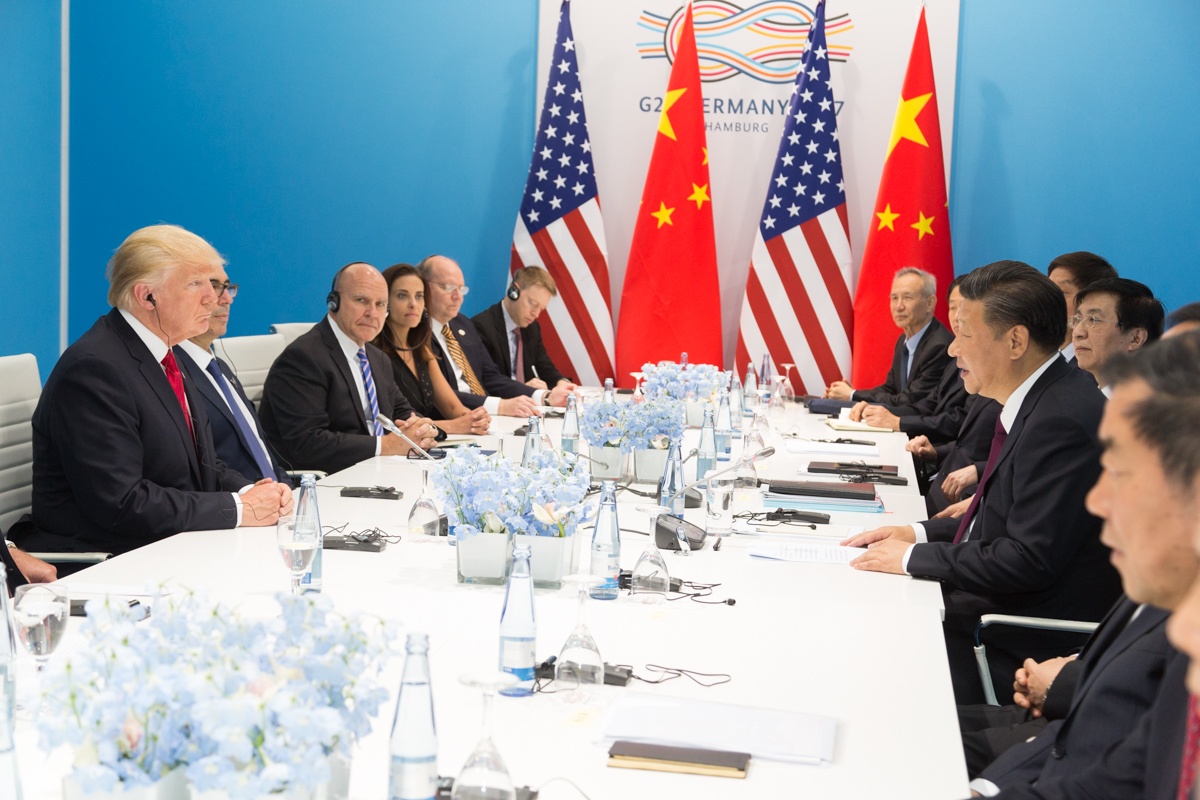This blog post is based on the author’s participation in a roundtable discussion recently hosted by the US Department of Defense and NSI.
American policy and media discourse over China have recently hardened perceptibly due to several contentious issues in economics, geopolitics and security. The US Department of Defense, for its part, has made it explicitly clear that it views China, as well as its ally North Korea as threats to American national security.
US security doctrine classifies the threats China and the DPRK pose differently, labeling China as a “revisionist power” while calling North Korea a “rogue state”. The latter country and the threat it poses toward the US as perceived in Washington, however are often explicitly linked to the former. Public discussions in the US pertaining to the Korean security crisis have long fielded the so-called “China responsibility theory”. The concept ascribes to China the power to curb North Korea’s behavior while blaming Beijing for not doing enough to resolve the Korean security crisis.
China certainly enjoys significant influence in the DPRK. Consider, for example, how prior to his death, Kim Jong-il scurried to set a strong, positive note to North Korea’s relations with China. Fast forward to this year, when, in preparation to meet with his American counterpart, Kim Jong Un traveled to China three times to consult with Xi Jinping.
Strong China-DPRK ties notwithstanding, the Chinese government, along with Washington, considers North Korean denuclearization as a policy aim. The overlap in Chinese and American interests regarding this particular issue is cold comfort for those who may hope that Korean security may be a holdout of cooperation between Beijing and Washington.
At the root of the dissonance between the PRC and the US over Korean denuclearization is the different ways Washington and Beijing view a nuclear-capable DPRK. Washington views North Korea’s actions as a threat to security. China, however perceives Pyongyang’s undertakings as jeopardizing stability.
North Korea and policy discourse in Beijing
At the outset of the North Korean nuclear saga in 1994, Beijing took a hands-off approach, viewing it as a bilateral dispute between Pyongyang and the United States. Over the next decade, however, China saw it fit to become more involved in the crisis, with Beijing hosting the Six Party Talks starting in 2003.
Within the PRC, the Chinese government has set unofficial yet seemingly inflexible rules over what North Korea-related topics may be broached in public discourse. Off-limits to discussion are coverage of sensitive subjects in China-North Korea bilateral relations such as regime change and cross-border activities including trade and migration.
Nevertheless, Chinese policy discussions over permissible DPRK-related topics have shifted in tone, speaking less of a “North Korean nuclear problem” and more of a broader “North Korea problem”. Recent analyses of Chinese-language media indicate that Beijing lays roughly equal blame on Pyongyang and Washington for the current state of affairs. Furthermore, public discourse among Chinese netizens has continued to grow increasingly severe, causing headaches for a Chinese leadership intent on keeping ties with North Korea intact.
As for the reason Chinese discussions over North Korea has grown more strident, Beijing increasingly finds itself trapped in a situation whereby it feels it must continue support the DPRK regime in order to preserve stability in Korea.
China’s quest for stability
A core tenet of Beijing’s current foreign policy is sustaining the so-called “Chinese dream”. This entails developing China’s middle class society as well as establishing the PRC as a responsible great power. On the latter point, China faces a quandary, insofar as supporting the Pyongyang regime tarnishes Beijing’s desired image as playing a constructive role in regional affairs.
The “Chinese dream”, nevertheless is impossible without stability, which has a twofold meaning for the PRC. It includes fostering both a favorable situation along the Chinese periphery and stable relations with its great power peer the US. Given the risk of conflict as well as the heavy US military presence in the Republic of Korea, Beijing’s desires for both peripheral stability as well as smooth relations with Washington converge on the Korean Peninsula. Indeed, China’s policies on North Korea factor in strategic stability with the US.
For Beijing, North Korean denuclearization is the last part of a multi-step process that China hopes will reduce sources of regional instability. As outlined in the so-called “roadmap” unveiled in 2017, the PRC (along with Russia) proposed short- and long-term measures. Short-term goals include a halt to North Korean nuclear and missile tests in exchange for the cessation of joint South Korea-US military exercises. In the long-term, China hopes that North Korea will ultimately denuclearize, with the combatant parties of the 1950-1953 Korean War signing a formal peace treaty.
Finding common ground
Ultimately, Beijing and Washington want the same thing, namely a nuclear-free Korean Peninsula. Nevertheless, China and the US are two countries divided by a common goal. The reasons for Beijing and Washington to pursue North Korean denuclearization, the pursuit of stability versus ensuring security, have led both sides to taking at times conflicting paths to the same goal. Korean security may not be an area of contention in Sino-American relations per se. But it is hard to imagine China and the US finding common ground in the pursuit of their mutual goal. Furthermore, the cooling views of Washington’s China hands is potentially and indication that cooperation between the PRC and the US over Korean security is increasingly remote.

